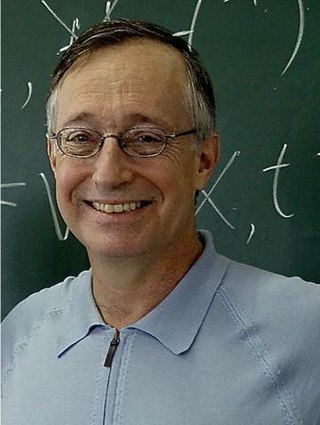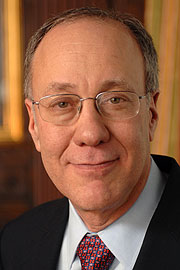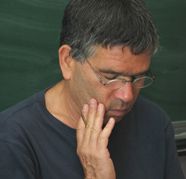This article has multiple issues. Please help improve it or discuss these issues on the talk page . (Learn how and when to remove these template messages)
|
Dirk Bergemann | |
|---|---|
| Education | |
| Occupations |
|
| Title | Douglass & Marion Campbell Professor of Economics and Computer Science |
| Academic career | |
| Institution | Yale University |
| Field | |
| Doctoral advisor | George Joseph Mailath [1] |
| Contributions | Bayes correlated equilibrium |
Dirk Bergemann is the Douglass & Marion Campbell Professor of Economics and Computer Science at Yale University. [2] He received his Vordiplom in economics at Goethe University Frankfurt in 1989, and both his M.A. and Ph.D. at the University of Pennsylvania in 1992 and 1993, respectively.
Bergemann's research is concerned with game theory, contract theory and mechanism design. His research has been supported by grants from the National Science Foundation, the Alfred P. Sloan Research Fellowship and the German National Science Foundation. Bergemann is the foreign editor for the Review of Economic Studies , and the associate editor of several other publications, including American Economic Journal , Econometrica, Games and Economic Behavior, and the Journal of Economic Theory .
Bergemann has made important contributions to the theory of mechanism design. [3] In his work with Stephen Morris on robust mechanism design, they relaxed common knowledge assumptions which were prevalent in the early mechanism design literature. [4] By formulating the mechanism design problem more precisely, they showed that simple mechanisms arise endogenously. This provided a theoretical justification for the relatively simple auction designs employed in practice, when compared to the complexity of optimal auctions suggested by the early literature. [5]
Bergemann has also pioneered work with consumer behavior around dynamic pricing structures. [6] He is a fellow of the European Economic Association. [7]






